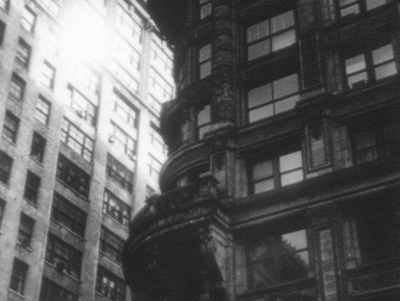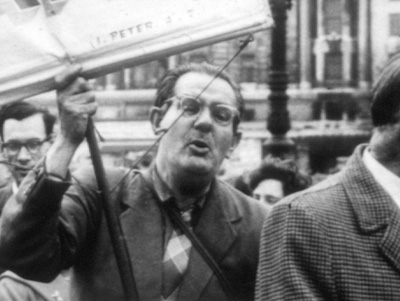

1961, 16 mm, b/w, sound, 7 min.
Influenced by jazz, the beat writers, and early avant-garde films such as Bruce Conner's collages of found footage, Arthur Lipsett made films on the dehumanizing effects of industrial society, counterpoising that theme with suggestions of a search for spiritual enlightenment.
At the very opening of 'Very Nice, Very Nice', a montage of office buildings is seen while a voice says, "In this city marches an army whose motto is..." Then the voice cuts off and is immediately followed by the honk of a horn. The unmistakable meaning of this little sound montage is that the horn itself has become the "motto" of a whole people, or more generally, that we have reduced our identities to the objects we create and possess.
" 'Very Nice, Very Nice' has a sober, sombre quality to it. It speaks of the indifference of humankind. At one point a man's voice states: 'People who have made no attempt to educate themselves live in a kind of dissolving phantasmagoria of the world, that is, they completely forget what happened last Tuesday' [while] a series of various close-up faces dissolve one into the other...
Lipsett questioned middle-class values. He felt victimized by them. He puzzled over people's obsessions with objects. His films view life as a living hell."
Lois Siegel, Cinema Canada, October 1986
